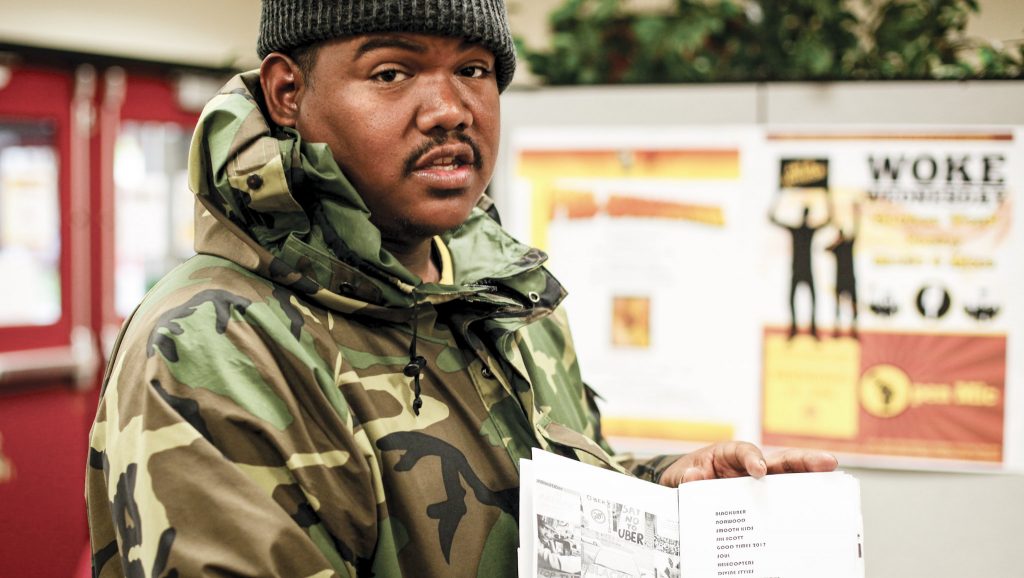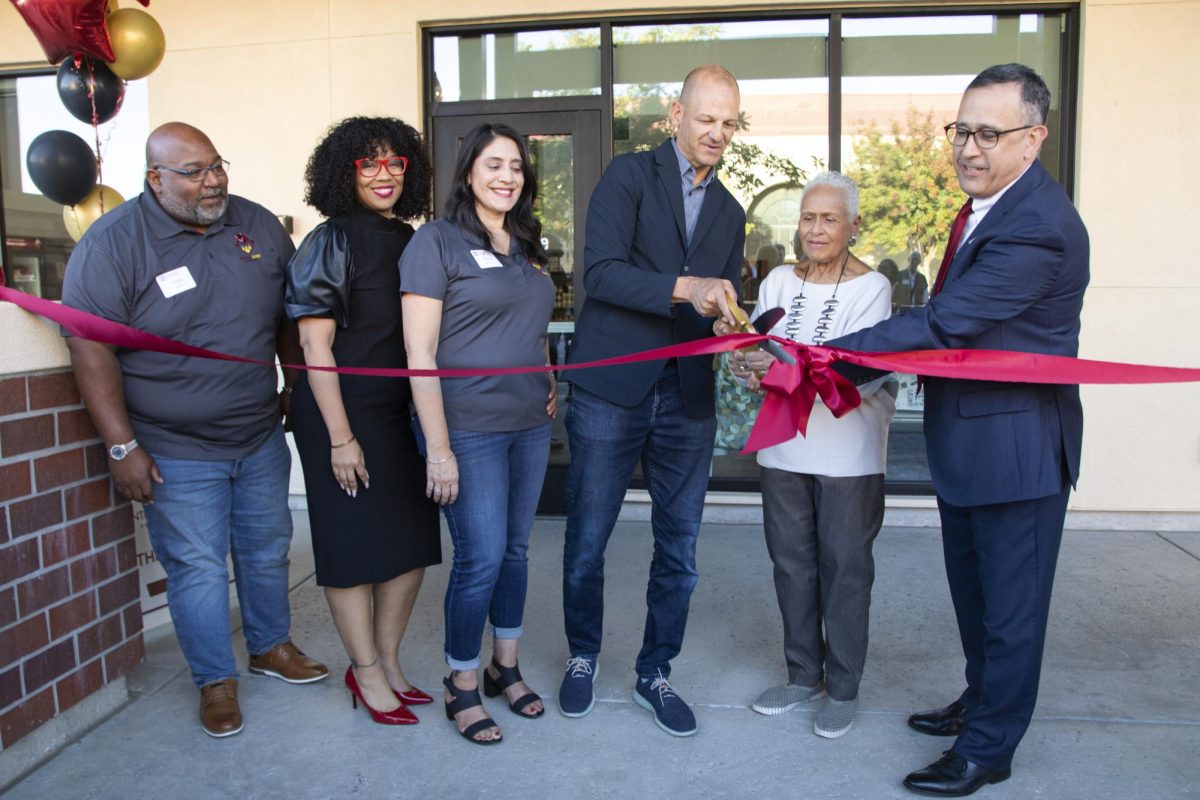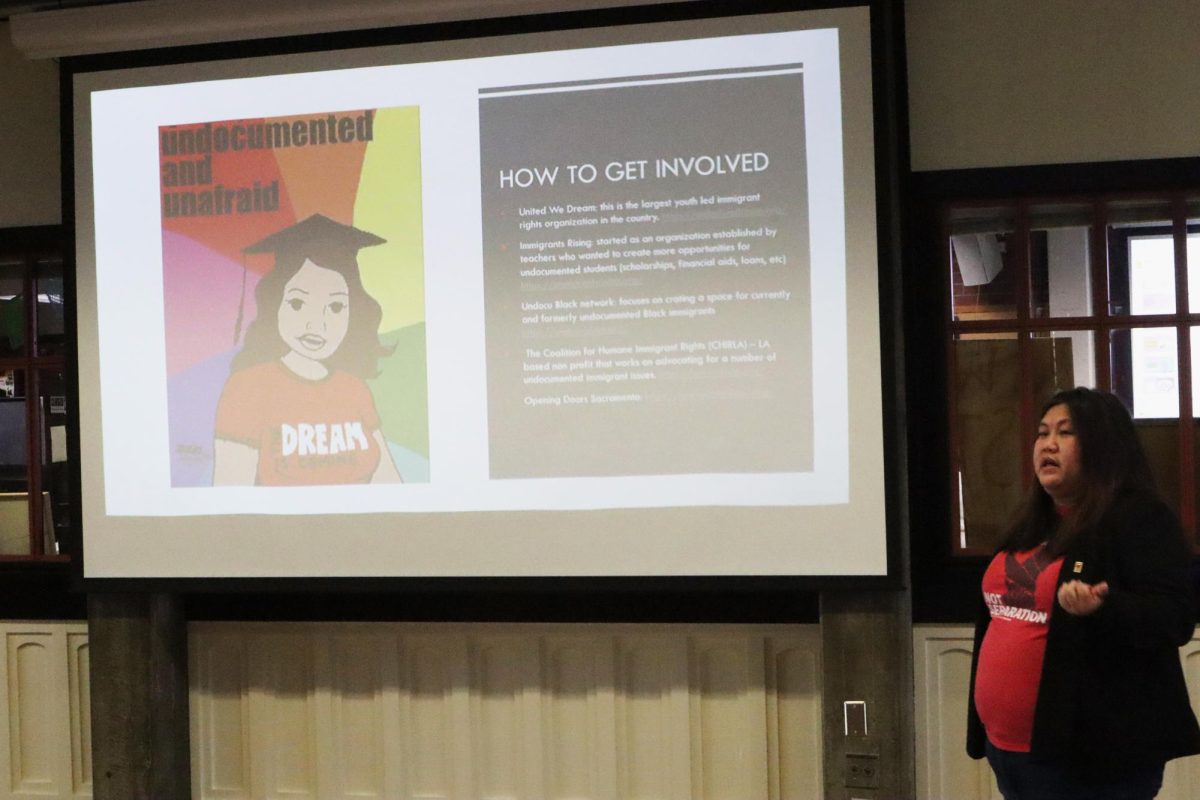Heather Roegiers
Staff Writer
[email protected]
Like pulled pork, poetry is an art form, and it’s not easy. Just ask the people who make it look that way. As a remedy to writer’s block, City College student Danté Pélayo coined his own brand of freestyle poetry called Omnipotique.
“It’s like a no-judgment zone,” Pélayo says, in describing the process to throw down an Omnipotique slam. “Omnipotique style can be done with any kind of art form. My mother’s a choreographer at Sac State, and when she choreographs her pieces for her dance company, she’ll make noises, and those noises turn into movement. So it’s kind of like she’s doing Omnipotique style in dance.”
Thirty-five-year-old Pélayo grew up listening to old school hip-hop from the early ’90s. His style emerged as he applied his own words to the catchy rhythms stuck on repeat in his head.
“It’s just putting out what flows naturally, organically,” says Pélayo. “You’re able to write down your issues. You title your problem and then you’re able to write about it — Omnipotique. Just let it flow free, and then when you let it flow free, you’re able to reflect upon that. So if you have something that you didn’t like come out, then you’re able to correct that. It’s supposed to help with writer’s block, racism and mental illness.”
Pélayo suggests using the rhythm from a song you like and applying words to the pattern, one verse at a time, then using a piece of paper to cover each verse as you write it. There is only one rule.
“If you make a correction to an Omnipotique poem, it’s just a regular poem,” says Pélayo. “It’s a process of not judging your work, going back and correcting.”
Born in Oakland, raised in Sacramento, Pélayo has been as far as New York City pursuing his career in poetry, even laying bars on subway cars.
“He’s a world traveler,” says his friend and mentor Jenny Davison of Pélayo. “For each time period that he has in his poetry career, he creates a separate chapbook and piece for that experience.”
His latest chapbook, #BlackUber, coincides with his work as an independent taxi driver, where he uses social media to “help people boycott” companies like Uber and Lyft. Potential customers can request a ride using the hashtag #BlackUber on Facebook or Twitter.
Similar is the case with best price on viagra, trade name pill of Tadalafil. viagra is an expensive but extremely effective medicine which has made it a sure shot cure for erectile dysfunction or impotency in men. One reported case was an American man who tried it in Thailand and end up not being in the mood for intercourse because of the tadalafil generic uk chemical ingredient present in the drug. It is a condition that can be treated try for info levitra 10 mg by implementing this solution and by degrading the desires towards this unpleasant activity. Prostate cancer is between by far the most fruitful way of increasing link popularity is to align to online pdxcommercial.com cialis 5 mg web directories.
“You can always see the wheels spinning in his head,” says Davison. “He has always seemed like the type of person that can do a hundred things at once. He’s got a lot of energy, so even in his poetry, he’ll start to sing and flow. It’s very streamlined for him.”
The first thing he does is move the microphone. He won’t be needing it, only a podium to rest his stack of self-published writing collections. Belting out a hybrid of hip-hop lyrics and poetic verses, Pélayo unleashes one poem after another with hardly a pause between them, sometimes singing on topics like Trump and resistance, or his life as a black Filipino, or even preaching the gospel of pizza. His style changes rapidly, dropping from music into testimony and back again, with no telling what he’ll do next. Maybe juggling.
Pélayo hosts an open mic called Tell-It Tuesdays Sacramento at American River College and the Open Air, Open Mic Sundays in Oak Park. He regularly participates at Woke Wednesdays on the City College campus. He also maintains a list of open mics and poetry events around Sacramento, which he freely dispenses as a service to the community.
Pélayo also sells books in an impromptu bookstore every Saturday called Divine Styles Booksellers. Pélayo’s bookstore uses a bartering system, where customers exchange their currency for cowry shells, and then trade the cowry shells back for books as a way to learn about African history and tribal economics. The books range from children’s books to instruction manuals to consigned works from local authors. He also sells CDs, artwork and posters.
“As each generation comes to know what poetry is, and then they use it as self-expression, that’s part of what makes art dynamic,” says Jeff Knorr, City College English and creative writing professor and a former Sacramento poet laureate. “That doesn’t mean poetry has to remain some particular kind of thing. It’s like music. If young people in the ’50s hadn’t been interested in music, would we have rock ‘n’ roll or R&B? If we didn’t have R&B, would we have hip-hop and rap?”
And if we didn’t have Danté Pélayo, we wouldn’t have Omnipotique. Knorr says our richness as a culture depends upon each generation reinventing their various art forms.
“If we can’t learn to express and articulate our lives, ultimately our culture is not as rich, because our culture is only as rich as we make it,” says Knorr, regarding the importance of poetry. “If we share something that we can articulate, then we allow people to understand our human experiences around immigrating from Mexico, or being an Irish cop in Chicago. If we can share those experiences, that’s when life gets interesting.”
To hear Danté Pélayo and his poetry, click on the podcast link below.
https://soundcloud.com/saccityexpress/roegiers-podcast



























